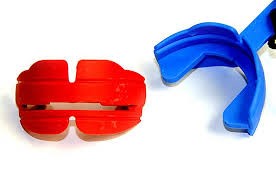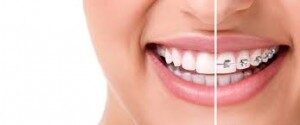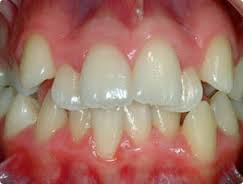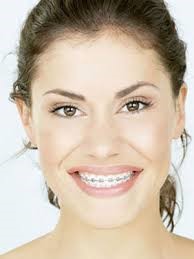July 9th, 2020
Does my child need to wear a mouthguard when playing sports with braces on? This is a question I am asked several times each week. The simple answer is yes. In fact, whether your child is wearing braces or not, mouthguards are a great idea to protect the health of your teeth while playing any sport in which there is the possibility of injury to your mouth.
Ironically, wearing braces actually helps protect your teeth from injury during sports in a way. I have seen several cases where a child has been elbowed or hit in the mouth, and were it not for the braces, they would have likely lost a tooth. The braces act as a splint for the teeth and provide “strength in numbers”. Instead of one single tooth absorbing the force of the blow, the force is spread across multiple teeth, thereby reducing its harmful effects. However, the effect the braces have on your lips and cheeks if you get hit in the face can be more damaging, then it would otherwise be without braces. A mouthguard will help protect your lips and cheeks from being cut or bruised in case of a sports accident and will also help provide the splinting effect to soften the blow.

There are a variety of different sports mouthguards available. The “boil and bite” mouthguards should be avoided while wearing braces. They will actually hinder the movement of the teeth and may pull some of the braces off during placement and removal. There are mouthguards designed specifically for use with orthodontic appliances and only these mouthguards should be used during treatment. Most orthodontists have orthodontic mouthguards available at their offices, or they can also be purchased at most sporting goods stores.
With the proper protection, you can continue to enjoy all the same activities you enjoyed prior to beginning your orthodontic treatment and keep your teeth healthy, safe and beautiful. If you have any questions about mouthguards for orthodontics, please visit our website or contact our office.
June 1st, 2020
The big day has finally arrived! After several months and sometimes a couple of years in orthodontic treatment, you are done with your Invisalign or braces! Woohoo!! However, it is important to understand that your orthodontic treatment is not yet finished. Taking your braces off and then just walking out the door would be like getting your car washed and waxed and then driving out into a rainstorm full of muddy puddles.

Invisalign and braces move teeth in your mouth by applying a consistent gentle pressure to the roots of your teeth which stimulates the bone around your teeth to remodel. This is what allows orthodontists to straighten your teeth. When your braces are removed, the bone around the roots of your teeth is not yet fully “set”. Removing braces and not wearing retainers would be similar to breaking your arm and then not putting a cast on it while it healed. If you do this, the bone may not heal in its proper place.
When braces are first removed, the teeth are somewhat unstable and need to time to stabilize into their final position. This is what makes retainers such an important part of orthodontic treatment. Retainers “retain” teeth in their final position. Most patients need to wear retainers full-time for at least a few weeks after getting their braces or Invisalign off to allow their teeth to stabilize. After a period of time, your orthodontist will tell you when it is OK to reduce the amount of time that you wear your retainers. The amount of time can vary between patients depending on where your teeth started. Teeth never reach a point where they are 100% stable because of all the forces constantly being applied to your teeth by chewing, talking, and swallowing. However, most patients can get to the point where they just wear their retainers at night while they sleep to keep their teeth looking straight and fitting well. Your orthodontist can guide you through the process of getting your braces off to make sure you have a beautiful smile for the rest of your life.
May 28th, 2020
Have you ever wondered why some people are just born with great smiles and others seem to have received the short end of the stick when it comes to teeth? Is it all just related to genetics?

There is absolutely a genetic component to how teeth develop, and genetics play into the likelihood that you will develop orthodontic problems as your adult teeth erupt. However, this is only part of the story. The environment in which your teeth erupt also has a significant influence on how they develop. In fact, I have treated identical twins, who are by definition genetically identical, but when you look in their mouth, their teeth are very different.
There are a number of factors that can affect the development of your teeth and bite. One common example is thumb sucking. Thumb sucking will change the pressure that your lips, tongue, and cheeks apply to your developing teeth and jaws. It tends to have a narrowing effect on the upper jaw and creates protrusion of the front teeth. Patients who have sucked their thumb for a prolonged period of time often require an "expander" to undo the damage as well as braces. We often joke with patients that the only things that should go into their mouth are food and a toothbrush. Everything else you want to keep out.
Another example of how environment influences dental development are children who eat a lot of sugary drinks and food. It's OK to have a sweet treat from time to time, but patients who constantly "nibble" or "sip" on sugary snacks or drinks and don't brush their teeth in between tend to get decay. If a patient loses a baby tooth early due to decay, it can disrupt the correct order in which the permanent teeth grow in and cause significant bite problems. If you have a child who has lost a tooth early due to decay, you should consult with an orthodontist to prevent the development of bite problems in the future.
May 5th, 2020
What are my braces going to feel like? Are my braces going to hurt? What foods can I eat? These are some of the typical questions patients ask on the day of their appointment to get braces placed on their teeth. They are all very good questions and important to answer to help patients feel at ease about the changes they will experience while receiving orthodontic treatment.

Wearing braces has become a relatively straight forward process with minimal discomfort compared to twenty years ago. While this is true, you are still going to experience some changes that will take a little getting used to. Your mouth is an incredibly sensitive place – you can feel the thickness of a hair in your mouth immediately and braces are much thicker than a human hair. Just like a new pair of shoes, your new braces may initially rub and cause an irritation to your lips and cheeks until your mouth gets used to having braces. The first few days are an adjustment period, but after the first week your braces start to become a new part of your mouth and are pretty easy to manage.
Wearing braces does require some minor modifications to the foods you eat and the liquids you drink. The adhesive used to place braces is designed to be strong enough to withstand chewing, but not so strong that it damages your teeth when the braces are removed. This is the reason for the need to be a little bit careful about eating really hard or really sticky foods. For example, ice chewing should be avoided whether you have braces on or not. If you would like to eat an apple, it is better to cut it into slices instead of biting into the core. Similar modifications can be made for most foods. Excessive drinking of soda – diet or not- should be avoided.
Braces will cause some slight discomfort the first few days as your teeth begin to move into alignment. There is a cartilage ligament around the root of each tooth that allows the orthodontist to mold the teeth into a better position. This process of molding the bone around the roots of teeth causes a slight amount of inflammation and is the source of sore teeth when braces are placed or tightened. Over the counter medications such as ibuprofen (Motrin or Advil), acetaminophen (Tylenol) or naproxen (Alleve) are generally sufficient to make you comfortable while you go through the adjustment period with braces. Anti-inflammatory medications such as ibuprofen or naproxen will generally be more effective than acetaminophen for tooth pain.
If you have any additional questions about what to expect with braces, please feel free to call one of our offices at Budd Orthodontics to schedule a free consultation. The adjustment period that braces require is totally worth it for the beautiful new smile you will enjoy!











 Website Powered by Sesame 24-7™
Website Powered by Sesame 24-7™